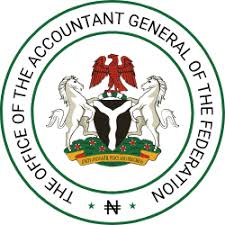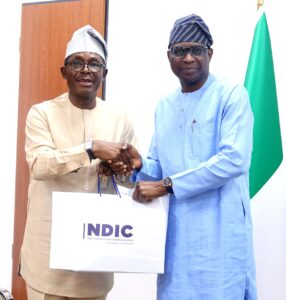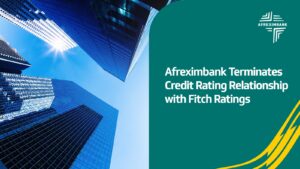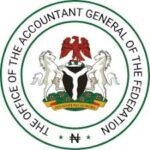By Ekerete Ola Gam-Ikon
It is with a very excited mind that I am engaging the second part of an “interesting write-up” as a number of feedbacks I received described the first part.
If the character of the insurance industry in Nigeria is defined by the way and manner claims are managed, then as we examine Capital in this part, I’ll be sharing with you (the policyholders), the necessary role that it plays in the business side of insurance in Nigeria.
I am looking at that role in four (4) dimensions namely:
• Minimum Capital Requirements
• Risks – Capital Allocation
• Capital Reserved for Claims Payments
• More Capital for More Underwriting Capacity
Firstly, like every other regulated business, an insurance company is expected to meet minimum capital requirements stipulated by law, in this case, the Insurance Act 2003.
That law states the Minimum Capital for General (Non-Life), Life, Composite and Reinsurance companies as N3b, N2b, N5b and N10b respectively.
These sums, as the Finance Act 2021 clarified, and put simply, should be investments and not properties (buildings). In the past, insurance companies had mostly buildings, which could not easily be converted into cash when they were financially weak and unable to honour their obligations to policyholders, employees, suppliers and governments.
Upon the second successful recapitalization in the insurance industry in Nigeria 16 years ago, the insurance companies that survived were lucky that the regulator, National Insurance Commission (NAICOM) did not undertake a Capital Verification Exercise (CVE), which would have exposed their lack of capacity to underwrite certain risks.
For example, by 2009 the Federal Government in its bid to promote local content, decided through NAICOM, that all insurance needs of the oil industry must be exhausted by the local insurers before any balance is taken abroad.
This provided the opportunity for all insurance companies to have a bite of the dollar-denominated insurance businesses of the oil and gas industry, and it was not long when claims begun to flow back to the insurance industry.
It was easy to identify and know the insurance companies that did not have the Capital they claimed to have during the recapitalization exercise. They did not only fail to pay the claims required of them in dollar equivalent but also begun to struggle with meeting their obligations to their stakeholders.
Efforts by NAICOM to penalize them proved seemingly counter productive and new regulations were circulated to bar some insurance companies from participating in the insurance businesses of the oil and gas industry.
Other Policyholders were not aware of these developments and could not be bothered until they had claims either on their Individual Life Assurance policies or those of other classes of insurance.
By 2014, NAICOM, acknowledging the boom in Nigeria’s economy, when it was rebased and the GDP took a leap, started considering a fresh round of recapitalization to ensure the insurance sector was adequately positioned to underwrite complex risks and assure foreign investors of the protection of their investments.
It is important to mention that the insurance sector received the priority attention of the Federal Government as the then Finance Minister and Coordinating Minister, Ngozi Okonjo-Iweala honoured an invitation to the National Seminar on Insurance, where new targets were announced in terms of the number of policyholders and policies achievable only through increase in Minimum Capital Requirements.
From a 3-tier approach that would have introduced classification of insurance companies for the first time in Nigeria, NAICOM faced legal challenges of the recapitalization process, even when it later decided to go with the familiar path.
NAICOM announced new Minimum Capital Requirements of N10b, N8b, N18b and N20b for General (Non-Life), Life, Composite and Reinsurance companies respectively.
The legal cases that ensued resulted in an unfavourable judgement against NAICOM while the National Assembly also ordered the suspension of the process.
As it turned out, recapitalization could only be done through the amendments of the Insurance Act 2003, which was already undergoing reviews at the National Assembly.
Meanwhile, many insurance companies had successfully raised their Capital beyond the Minimum Capital Requirements of NAICOM with strong evidences.
Smart insurers had anticipated that NAICOM will still react to the issue of Capital and chose the Risk-Capital Allocation model. Subsequently, it was not surprising when the regulator announced that it was ready to test and implement the Risk-based Capital approach, which meant insurance companies in Nigeria will only underwrite risks up to the volume their Capital could allow.
The test run had been concluded and NAICOM is already implementing Risk-based Capital approach to ensure that insurers in Nigeria are not “biting more than they can chew”!
Though, today, capital flight has become more pronounced as only few insurance companies in Nigeria are able to compete due to poor exchange rate and high rate of inflation.
Who keeps the policyholders informed about all these developments? How do they know insurance companies that have the needed Capital to underwrite their businesses?
Insurance Brokers do the great work of informing policyholders when they are contacted but there is need for a self-service platform, which I had hoped the NAICOM Portal will fulfil from the narrative of it.
On Claims Reserves, as an existing or potential policyholder, be fully aware that insurance companies have statutory obligations to maintain Claims Reserves and should have no excuse not to pay your claims promptly. The funds should be held in liquid investments.
Most insurance companies do not maintain the Claims Reserves Accounts and struggle when the claims amounts are of high monetary value, giving policyholders the impression of either not having money or deliberately delaying payments to their detriment.
All said, the insurance sector has huge growth potentials for well-capitalized insurance companies with large investment size for long term opportunities, which only few have shown thus far.
To remain consistent and deliver the promises of insurance, the operators need strong financial base represented by huge Capital (Shareholders Funds) and large Investments in convertible form, to be able to meet policyholders’ obligations promptly and be considered successful.
We are in an era where the withdrawal of the operating licences of insurance companies by the regulator might be slower, therefore policyholders have to decipher where they insure. Please seek professional advice at all times.
The relevance of Capital in insurance business is inexhaustible!
I look forward to your comments and questions and be assured of my responses.
I remain…
Assuredly Yours,
Ekerete Ola Gam-Ikon
+234-802-585-0344
olagamola@gmail.com
…To Be Concluded Next Week 😊
Good production costs money and you can support what we do. Please find our details below👇🏾👇🏾👇🏾 Account name: MARKET ONLINE MEDIA Bank: UBA Acc No: 1026401930.






























